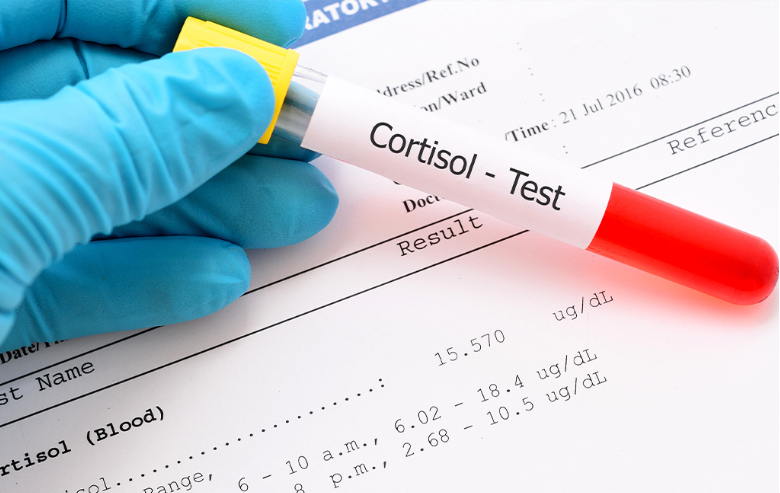
We all experience stress from time to time — it goes hand-in-hand with being alive. However, it shouldn’t become a roadblock to your ability to enjoy life. To invite happiness and peace into your day-to-day, it’s helpful to master stress management strategies, like maintaining a robust fitness routine and promoting a healthy sleep schedule.
Cortisol-reducing dietary supplements are another option. But exactly what supplements lower cortisol and how do they work?
From ashwagandha and omega-3 fatty acids to CBD, our guide explores the best supplements for stress relief and how to incorporate them seamlessly into your daily routine. So, sit back, relax and let’s dive right in.
Cortisol Basics
First things first: what’s cortisol?
Cortisol is a natural steroid colloquially known as “the stress hormone.” Despite the moniker, it’s not the onlystress-related hormone your body produces, nor is it just a stress response.
In reality, cortisol plays an important role in the regulation of many bodily functions and systems, like your:
- Metabolism
- Formation of memory
- Balance of salt and water in the body
- Heart health
However, when you produce excessively high cortisol — as you might during a long-term stressful situation — it can interfere with your overall wellness, resulting in symptoms like:
- Weight gain
- Unhealthy blood sugar levels
- Weak bones and muscles
On the other hand, if you properly control your cortisol levels, you may enjoy noted wellness benefits instead, like:
- More energy during the day
- Higher quality of sleep
- Less brain fog
But to learn how to properly control elevated cortisol levels, you have to first understand what increases cortisol.
What Increases Cortisol?
While stress is one of the biggest cortisol boosters, it’s not the only factor in high cortisol levels. Others include:
- Caffeine in excessive amounts
- A lack of restful sleep
- Certain medications
Some of these are easier to avoid than others. For example, you may not be able to stop the medications you’re currently using, but you can cut down on your caffeine intake.
What’s more, you can go even further than simple lifestyle changes by adding natural, stress-fighting supplements to your daily routine.
Supplements That Can Help Reduce Cortisol Levels
Though many supplements are advertised for stress relief and cortisol management, a few stand out:
Omega-3 Fatty Acids
Not only do these acids help reduce elevated cortisol levels, but they can also help soothe inflammation in your body.
While you can find omega-3 fatty acids in many foods like salmon and nuts, it can be tricky to get your daily recommended dose through food alone. This is why supplements are so useful.
Ashwagandha
This adaptogenic herb may help with:
- More restful sleep
- Improved memory and focus
- Lower stress levels
In fact, Ashwagandha is prized for its rejuvenating properties, and it may even help your body develop resistance to some stressors.
Vitamin C
Vitamin C is an antioxidant powerhouse when it comes to supporting your overall physical and mental health. It may have mood-boosting properties, and it protects your cells from the oxidation that cortisol can cause.
Rhodiola
Like ashwagandha, Rhodiola is an adaptogenic herb that can lift your mood, help you focus, and allow you to enjoy more restorative sleep at night.
Magnesium
Interestingly, magnesium deficiencies can increase the production of stress hormones in the body, so it’s important to get enough of it. This mineral supplement also supports relaxation.
L-Theanine
This amino acid is found in tea leaves. Not only can it help reduce cortisol levels, but it can also induce relaxation without causing drowsiness.
Considering CBD
Recent studies show that CBD — a component of marijuana — may also lower levels of cortisol. Specifically, one study found that people suffering from stress who took CBD experienced reduced levels of cortisol. On top of that, marijuana itself has proven relaxing effects on both the body and mind.
But if you want to know how to destress without feeling high, don’t worry; CBD doesn’t have psychoactive components. That means you can enjoy the potentially stress-reducing benefits of CBD without the high of marijuana.
To experience the difference for yourself, consider CBD gummies or hemp pills tablets from Zebra CBD, your trusted CBD expert. We offer a variety of high-quality, third-party-tested CBD products including chewable tablets, oils, topicals and more, so you can choose which administration method best fits your daily life. You can also discover our article on the best CBD for sleep if you’re looking for a product to best help you unwind after a long day.
Tips for Taking Your Supplements
Whenever you start taking a new supplement, keep these tips in mind to ensure you get the most out of the experience.
Follow Dosing Instructions
When it comes to dietary supplements, dosing instructions aren’t suggestions; they’re meant to deliver the best result in the safest way.
Dosing instructions should include:
- How many pills to take
- Whether to take them with food or water
- The time of day you should take them
If you’re trying out CBD products from Zebra CBD, heed the amount of CBD per serving and take care not to overshoot your limits. It’s always better to start low and increase your dose as needed.
Test New Products Properly
It can take about a month to experience the full effects of a supplement, so your trial runs should last around 4 weeks. If something doesn’t work for you right away, don’t discount it just yet.
However, if you notice poor reactions like an upset stomach or itchy skin, seek medical advice before continuing use.
Don’t Add Too Many Products at Once
You don’t want to add dozens of new supplements to your routine all at once. Try one at a time, and introduce them carefully and slowly over a period of weeks.
This will allow you to understand what’s helping, what’s hurting and what doesn’t have any effect at all.
Controlling Cortisol Through Lifestyle Changes
In addition to taking supplements, incorporating certain strategies can help you manage and reduce cortisol levels. For instance, you can try:
- Finding a regular exercise routine that works for you, like brisk walking or swimming
- Learning deep breathing exercises
- Practicing relaxing yoga poses
- Eating healthy, nutritious and fulfilling meals
- Practicing mindfulness through meditation or journaling
- Working on your sleep hygiene
Learning how to recognize stressful thought patterns and habits is a big step toward healthy stress management, too.
Lower Your Cortisol Levels Naturally With Help from Zebra CBD
Cortisol is a natural steroid that, in excess, can send your wellness into a tailspin. Fortunately, you can lower your cortisol levels naturally by incorporating supplements into your daily routine. This can also include CBD, a derivative of marijuana.
If you want to buy CBD online, your search begins and ends with Zebra CBD. Our products set the industry standard, as they’re each quality and third-party-tested to ensure you’re only getting the best of the best.
Shop Zebra CBD today, and enjoy a stress-free tomorrow.
Sources:
- Forbes Health. 5 Supplements To Reduce Cortisol, According To Experts. https://www.forbes.com/health/supplements/supplements-to-reduce-cortisol/
- Healthline. 11 Natural Ways to Lower Your Cortisol Levels. https://www.healthline.com/nutrition/ways-to-lower-cortisol
- Eat This, Not That. The 7 Best Supplements To Lower Cortisol. https://www.eatthis.com/supplements-to-lower-cortisol/
- The Yale Wave. 6 Unexpected Benefits of CBD. https://campuspress.yale.edu/wave/6-unexpected-benefits-of-cbd/








